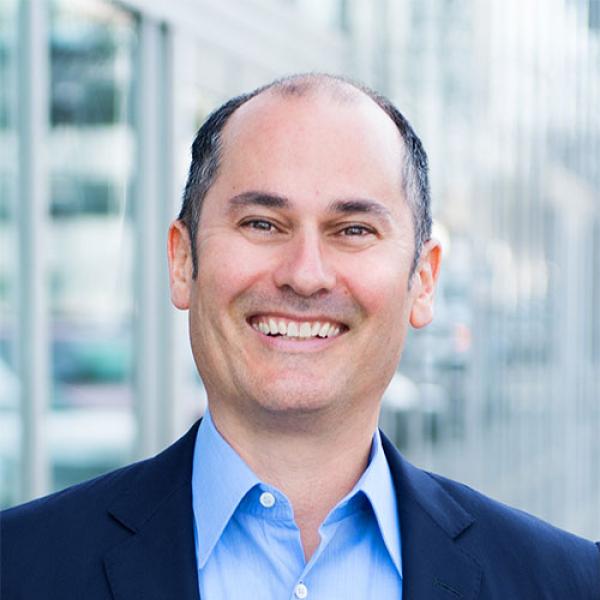
If you’re interested in how to become a functional medicine practitioner I have quite a bit to say on the subject so please read on.
I’ve personally worked with several thousand practitioners in the last twenty years showing them how to become a functional medicine doctor and have a deep understanding and appreciation for the various functional medicine degree programs. When I coach someone new to functional medicine I’m always looking for what is best for them, knowing that even if I send them to a different program from one I teach, if they get a benefit it works to all of our advantages in the long run.
There are two general categories you could be in. Those that already have a degree and those that don’t. If you have a MD, DC, ND, or Lac degree already then how to become functional medicine practitioner issues boil down to what starting point you have in mind. Do you want to learn the science and background underpinning of functional medicine first? If that is the case then the Institute of Functional Medicine has world-class courses for every significant area of practice. Start there with IFM’s introductory course and go on. If you want to learn about the coaching aspect of the work, how to teach people about the best diet and exercise programs, then one of the stellar coaching programs out there is the best option. If you want to learn an area of specialization such as a focus on cancer patients, Lyme disease or genetic issues, then there are specific trainings in each of those areas. The quite amazing thing is at this point in my career I am very familiar with and oftentimes friends with the various doctors that teach all these programs. We all, myself and the other doctors teaching this work, have your best interests at heart and rather than seeing any sense of competition I am very clear that we are all mission oriented. Therefore we all work together cooperatively to help folks like you build a practice.
Schedule a 15-Minute Phone ConsultationPractical Clinical Application
My specific niche is practical application of clinical protocols and lab interpretation along with practice management and patient education techniques. In other words, I teach what I do with patients. I’m one of the few teachers who still runs a practice and so I continue to develop my focus on practitioner mentorship type educational programs. Many of my colleagues are more into research and they are far superior for situations where a doctor wants to specialize in an area such as treatment of cancer patients or Lyme disease or complex neurodegenerative diseases like Parkinson’s or dementia. My programs are for the generalist who wants to get started and learn the basics. If you want practical application and clinical knowledge then my courses, such as the Kalish Method Mentorship are the perfect program to start you on your new career path.
To learn more about becoming a Functional Medicine practitioner, please see our full range of available training courses available to you!
I also have watched my students go on in their careers and everyone ends up taking multiple courses so as much as possible I would like to act as a resource, not just to funnel people into my online functional medicine training programs but also as a mentor that can help you with the many key moments in your career when choices come up. I’m old enough now to go to conferences and see on the speaker list several doctors that were still in school when they did my training! This is a wonderful experience for me, as I feel my role as a teacher is elevated when I see my students become thoughtful leaders and researchers developing the next level of treatment options for patients.
Become a Functional Medicine Practitioner
If you are really just starting out and don’t have a degree yet, you have many opportunities in front of you. The interesting thing about functional medicine is the discipline can be practiced very successfully by people with a wide range of professional backgrounds. I do find some professional licensing makes a huge difference and that those that are unlicensed health coaches or unlicensed nutritionists have a much tougher go of things than those that pursue an advanced degree. This is because even just ordering functional medicine tests can become problematic without a degree. That being said there are some exceptional health coaches out there that contribute to functional medicine in many ways.
I opted to become a chiropractor in order to practice functional medicine simply because in the late 1980’s California didn’t license naturopaths and the acupuncture schools didn’t seem like the best option way back then and I thought about medical school but it didn’t seem like the best fit for me. I took one trip to Cambridge, MA and met with an alumnus from my undergraduate school that was a professor at Harvard Medical School. We had lunch and toured around and let’s say I didn’t resonate with the vibe there! I’m a simple let’s do this now, let’s not be limited type personality and felt much more at home in the slightly wild, wild west atmosphere of functional medicine back in those days. Let’s call it a nonconformist attitude perhaps. Much has changed since the 1980’s, from hair styles to pop music, and functional medicine has moved on considerably as has the rest of our culture, now you can operate under a ND license in California and the many schools of Chinese Medicine are top notch and well developed and I see large numbers of folks from those schools pursuing work in functional medicine. The chiropractic profession is still strongly represented within functional medicine and of course the largest growth I’ve seen is within the medical field where we now see MD’s and NP’s building functional medicine clinics in ever-larger numbers.
Schedule a 15-Minute Phone ConsultationWhat is the Best Training to Prepare for a Career in Functional Medicine?
Depending on your previous schooling and general aptitude I think many of the professional licensing school options are viable, from medical school to naturopathic medical school over to a chiropractic degree or degree in Chinese medicine and acupuncture. Some practitioners really want the option to adjust medications, prescribe medications and have a more full service clinic that balances conventional medical care with functional medicine in which case an MD, NP, or DO degree makes the most sense. Others have a more anti-conventional medicine approach in mind and want to combine functional medicine with Chinese medicine, chiropractic or naturopathy.
I honestly at this point don’t think it matters what you choose in terms of professional programs controlling your potential success in functional medicine. In other words there is no best or ideal training, it’s more what suits you and your overall career goals. For me as a chiropractor I’ve been so happy, I would not want to nor was I ever interested in prescribing drugs. The sight of blood makes me a little dizzy, so medical school would have been a challenge and I really like the structural component of healing that chiropractors are so good at. I have other close friends who are the absolute best doctors of functional medicine that combine functional medicine skills with their conventional medical training. My favorite example of this happened a few years ago when I was at a cabin in the woods and one friend came down with an allergic reaction to a food and my MD doctor buddy ran to his room, grabbed his doctor bag (yes an old fashioned black leather bag he carries with him) and offered the allergy sufferer a homeopathic remedy or a prescription to stop the allergic attack! Knowing both worlds of conventional medicine and functional medicine is a powerful combination. If you can handle getting into and getting through medical school then go for it.
I also see doctors of Chinese medicine really excel at the work because their original training is systems oriented. They see a complex web of meridians and energy systems and organ systems in the body as part of their basic training in Chinese medicine and this carries over quite well to a functional medicine practice. Also acupuncturists tend to have good energy and enjoy the coaching and hand holding aspects of the work. Chinese medicine blends exceedingly well with functional medicine, in a way it is quite seamless. Be on the lookout for specific state law related issues as there are some states that do not allow acupuncturists to order lab tests, although that is rare.
And the naturopaths, oh the naturopaths! They have all the natural medicine training on herbs and nutrients and clinical applications of natural hormones and so on, so once again their background brings a richness to a functional medicine practice. The reality is I don’t know if we’d even have functional medicine if it weren’t for the development of naturopathic medicine in the first place. Naturopathic schools and the acceptance of the degree seem to be on the rise in my lifetime with greater and greater acknowledgement of their role in our healthcare system. Again be on the lookout for state to state related issues in terms of licensing for ND’s, as it varies quite a bit and if you for sure want to practice in a state that doesn’t allow ND’s to be licensed, as happened to me in the 1980’s in California, then you may want to rethink things.
Many Disciplines Within Functional Medicine
I went to chiropractic college, but upon graduation my two main teachers in the area of functional medicine and clinical nutrition were naturopaths and further, I was trained by an MD, a well known one named Dr. John R. Lee, in the use of natural progesterone. So even outside of whatever specific licensing program or degree program you choose there are many opportunities to learn from other professionals and become cross trained so you cover all the bases you need to build the type of practice you want.
I also see such a variation in types of functional medicine clinics. There are clinics like mine where we just do a simple version of functional medicine. There are complex clinics that treat Lyme, toxic mold, Parkinson’s and cancer patients. There are MD’s combining a psychiatric practice with functional medicine and those combining diabetes treatment with functional assessments. We see acupuncturists doing half functional medicine and half Chinese medicine depending on the patient’s needs and the same with ND’s and chiropractors. Really it’s a very open area with much room for interpretation and the ability for you to put your own unique stamp on the clinic you want to create.
If you have questions on this topic feel free to schedule a call with our staff or myself, happy to help sort through this issue and come up with best options for you. Be sure to checkout our most popular course The Kalish Method Mentorship.
Schedule a 15-Minute Phone Consultation
